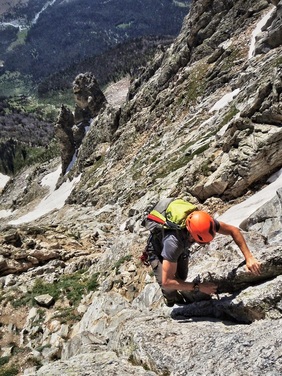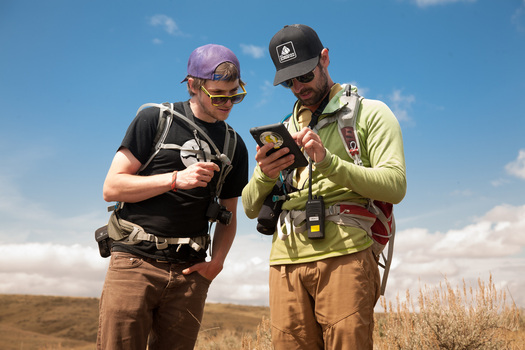ASC Staff
“Startup” is a ubiquitous descriptor in the business world. It suggests a dynamic nature, a potential for rapid growth and, as Forbes says, “a finger on the pulse of the future.” The startup boom is a recent phenomenon, brought on by the technological reality of a business unconstrained by geography.
 ASC climber Dylan Jones uses his smartphone to enter pika observations into an online database. (Photo courtesy of Dylan Jones)
ASC climber Dylan Jones uses his smartphone to enter pika observations into an online database. (Photo courtesy of Dylan Jones)
We’ve developed a 21st-century approach to data collection. What ASC does is sometimes described as “citizen science,” but we shy from that term, since our form of adventure science goes beyond the citizen science model of casual observation. By using tools like video, Skype, GPS and smartphones, we provide our volunteers with in-depth training and reliable, intuitive observation platforms. As a result, our partner scientists can receive high-quality, high-integrity data in real time.
The most successful for-profit startups aren’t the purveyors but the connectors—the Airbnbs, the Ubers. Mediation and facilitation are hallmarks of the new, global sharing economy. We do the same, mediating and facilitating the collection of scientific data.
ASC’s capacity for growth is in our ability to make these connections. Water samples from a Greenland sailing expedition are analyzed in Maine; snowboarding unnamed Himalayan peaks and collecting glacier samples for a university lab in Venice are no longer mutually exclusive. Instantaneous worldwide interconnectivity is the new normal in economics, in politics, in information.
For conservation to happen in the 21st century, this should be the case in science, as well.

